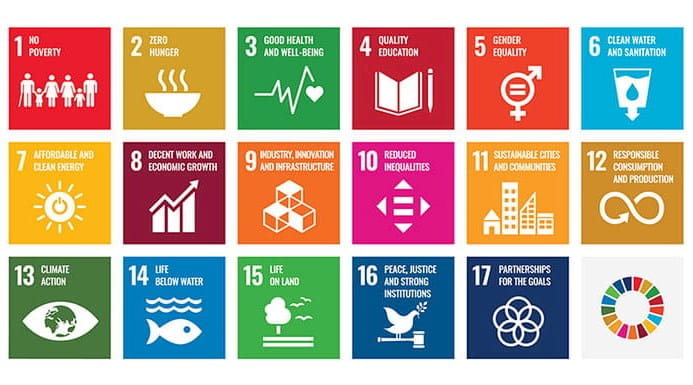An expansion of Rise – the social mobility programme co-founded by ICAEW – aims to reach 50,000 young people in the next year, as concerns about the impact of social inequality continue to mount.
Rise was launched in 2021 with the vision of equipping the hardest-to-reach young people with the skills they need to succeed in life and work. It does this by delivering skills workshops developed by The Talent Foundry for schools in areas of low social mobility, supported by employer volunteers.
Already, 8,500 young people have attended 148 workshops across the UK and the resounding success of Rise to date – 100% of teachers have rated the workshops either excellent or good – is encouraging ICAEW to massively scale up the programme to help even more individuals achieve their potential.
Ramping up Rise
From this month, the programme will also offer freely downloadable resources for teachers to use in lessons that link curriculum subjects to skills development and careers.
ICAEW Chief Executive Michael Izza says the moral imperative, together with the growing need for business to embrace sustainability in all its forms, is propelling concern about social inequality to the fore. “Since the financial crisis, inequalities have widened in the UK. And as we talk about sustainability, the transition to net zero and the importance of nature-positive policies, we need to make sure that inequalities in society don’t widen, for society’s sake.”
The UK ranks 21st on the World Economic Forum’s global social mobility index, well behind most European countries. Meanwhile, the attainment gap continues to grow between those from lower and higher socio-economic backgrounds. This will cost the UK economy up to £140bn a year until 2050, amounting to £1.3trn in lost GDP over the next 40 years, according to educational charity The Sutton Trust.
This isn’t about encouraging school children to pursue accountancy careers, Izza says. “This is about engaging with young people who may not have the aspiration, the motivation, the encouragement or the opportunities to think about what might be possible.
“Through a series of interventions, the hope is that we can encourage them to recognise that the attributes they all have – things like listening, speaking, problem solving, creativity, staying positive, teamwork – are exactly the sorts of things that employers are looking for in their workforce. They all have something that is highly desirable, that they can build a career on.”
Karen Campbell-Williams, UK Head of Tax at Grant Thornton – another of the firms that co-founded Rise – confirms: “Skills development of young people will ensure greater confidence, increased career prospects, and a better skilled workforce.”
Professional careers simply aren’t on the radar for many of the young people in Rise’s reach. “When you ask, have you thought about being a teacher, a doctor, a lawyer, an engineer – even a chartered accountant, they’re not careers the children had thought about,” says Izza. “And then you tell them, your journey to get there might be tough, but all these possibilities are open to you. They just haven't had that sort of dialogue with anybody before.”
ESG opportunity for firms
To date 27 partner firms are signed up to the Rise programme and Izza says the desire to get involved is strong and genuine. The objective is to grow that number to 50 by the end of July 2024. “Our members talk passionately and with real concern about the inequalities, the deprivation, the lack of life chances for some young people.”
From an ESG perspective too, there’s increasing understanding of the relevance of the UN’s 17 Sustainable Development Goals (SDGs) as aspirational targets to make the world a better place, Izza says. “Social mobility supports a number of the SDGs: it helps eliminate poverty, it helps rising education, it gives decent work and economic growth – and reducing inequalities is one of the goals itself.
“I’m sure there’s a perception in some quarters that chartered accountants are generally very privileged individuals. This is a way of us demonstrating that we haven't pulled up the ladder behind us.”
Izza says encouraging firms to sign up to Rise is not a difficult sell and he’s encouraged by the motivation they show to make a difference. The location of many of the schools means time commitment is often the biggest challenge, but the personal fulfilment that participants gain makes the logistical challenges more than worthwhile, Izza says, as it’s something he has experienced first-hand.
Rachel Hopcroft, Head of Corporate Affairs at fellow Rise founding firm KPMG UK, agrees: “Rise is a great example of business collaboration to drive social mobility, and it delivers brilliant impact for young people and the colleagues who volunteer.”
Izza is buoyed up by the target of supporting 50,000 young people by August 2024. He admits that tracking the success of the programme beyond school is tricky, but remains confident that fuelling aspirations by opening eyes to potential opportunities and career paths can be enough to make a difference.
“If, in five or 10 years’ time, we were able to find these interventions have made a difference to improving people’s life chances – even to a small number of young people – that would be something we could collectively be really proud of.”
More on Rise
Get involved
Your organisation can support social mobility and help young people develop the skills that business needs by joining Rise.




